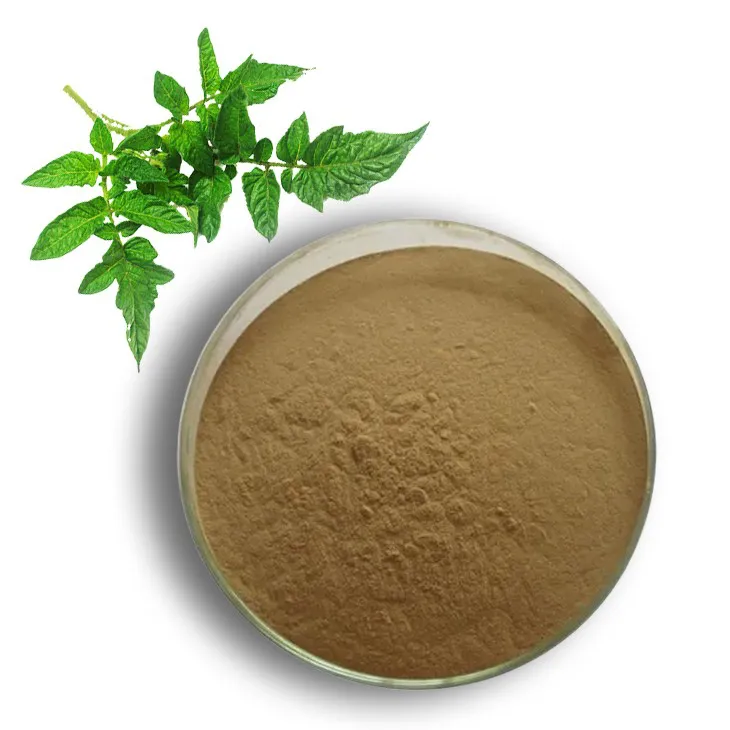- 0086-571-85302990
- sales@greenskybio.com
Senna Leaf Extract: What Are the Benefits and How to Take It?
2024-11-12

1. Introduction
Senna Leaf Extract has been recognized for its unique properties in the field of health and wellness. Derived from the senna plant, this extract has a long history of use in traditional medicine systems across the world. It is important to note that while it offers certain benefits, proper understanding and usage are crucial to ensure safety and effectiveness.

2. Benefits of Senna Leaf Extract
2.1. Relief from Constipation
One of the most well - known benefits of Senna Leaf Extract is its ability to relieve constipation. The extract acts on the intestines, promoting bowel movements. It does this by irritating the lining of the colon, which in turn stimulates the muscles in the intestines to contract and move waste through the digestive tract more efficiently. This can be especially helpful for those who suffer from occasional constipation due to factors such as a lack of dietary fiber, dehydration, or a sedentary lifestyle.
2.2. Digestive Tract Cleansing
Senna leaf extract also aids in cleansing the digestive tract. By increasing the frequency of bowel movements, it helps to remove accumulated waste, toxins, and undigested food particles from the intestines. This can potentially improve overall digestive health and may even have a positive impact on other aspects of the body's functioning, such as nutrient absorption and immune system function. However, it should be noted that more research is needed to fully understand the extent of these effects.
2.3. Weight Management Support
Some people believe that senna leaf extract can play a role in weight management. Since it helps with bowel movements and can reduce the amount of waste stored in the body, it may contribute to a temporary reduction in body weight. Additionally, a cleaner digestive tract may potentially improve metabolism, although the evidence for this is not yet conclusive. It is important to remember that senna leaf extract should not be considered a sole solution for weight loss, but rather a complementary component within a comprehensive weight management plan that includes a healthy diet and regular exercise.

3. Considerations Before Taking Senna Leaf Extract
3.1. Medical Conditions
Individuals with certain medical conditions should exercise caution when considering taking senna leaf extract. For example, those with intestinal obstructions, Crohn's disease, ulcerative colitis, or other inflammatory bowel diseases should avoid using it, as it may exacerbate their condition. Additionally, people with kidney or liver problems should consult a healthcare provider before starting to take senna leaf extract, as these organs play important roles in metabolizing and excreting the substances in the extract.
3.2. Medication Interactions
Senna leaf extract may interact with certain medications. It can interfere with the absorption of some drugs, such as oral contraceptives, anticoagulants, and some cardiac medications. If you are taking any medications, it is essential to inform your doctor before using senna leaf extract to avoid potential adverse effects. Your doctor can then determine whether it is safe for you to use and, if so, provide guidance on how to manage any possible interactions.

4. How to Take Senna Leaf Extract
4.1. Dosage
The appropriate dosage of senna leaf extract can vary depending on several factors, including age, overall health, and the severity of the condition being treated. For adults, a typical starting dose may be around 10 - 15 mg per day. However, it is important to start with a low dose and gradually increase if necessary, while closely monitoring for any adverse reactions. For children, the dosage should be determined by a healthcare professional, as their bodies are more sensitive and the potential risks are greater.
4.2. Frequency
The frequency of taking senna leaf extract also needs to be carefully considered. Taking it too often can lead to dependence on laxatives and may cause problems such as electrolyte imbalances and dehydration. Generally, it is not recommended to take senna leaf extract on a daily basis for an extended period. For most cases of occasional constipation relief, taking it once or twice a week may be sufficient. However, individual needs may vary, and it is always best to consult a healthcare provider for personalized advice.
4.3. Forms of Senna Leaf Extract
Senna leaf extract is available in various forms, including tablets, capsules, and powders. Tablets and capsules are convenient and easy to take, and they usually come in pre - measured doses. Powders, on the other hand, can be more flexible in terms of dosage adjustment, as you can measure out the exact amount you need. However, powders may have a stronger taste and may need to be mixed with a liquid or food for consumption. When choosing a form, consider your personal preferences and ease of use, as well as the accuracy of dosage control.
5. Potential Side Effects
5.1. Gastrointestinal Discomfort
Some people may experience gastrointestinal discomfort after taking senna leaf extract. This can include symptoms such as abdominal cramps, bloating, and diarrhea. These side effects are usually mild and may subside as the body adjusts to the extract. However, if the symptoms are severe or persistent, it is important to stop taking the extract and consult a healthcare provider.
5.2. Electrolyte Imbalance
Excessive or long - term use of senna leaf extract can lead to an electrolyte imbalance. This is because the increased bowel movements can cause the body to lose important electrolytes such as potassium, sodium, and chloride. Symptoms of electrolyte imbalance can include weakness, fatigue, muscle cramps, and irregular heartbeats. To prevent this, it is important to maintain proper hydration and, if necessary, supplement with electrolytes when taking senna leaf extract.
5.3. Dependency
As mentioned earlier, over - reliance on senna leaf extract for bowel movements can lead to dependency on laxatives. This means that the intestines may become less able to function normally without the stimulus of the extract. To avoid this, it is important to use senna leaf extract only as needed and to focus on maintaining a healthy diet and lifestyle to promote regular bowel movements.
6. Conclusion
Senna leaf extract can offer certain benefits, particularly in relation to digestive health and constipation relief. However, it is not without risks, and proper usage is essential. Before taking senna leaf extract, it is crucial to consider your individual health status, potential medical conditions, and any medications you may be taking. Consultation with a healthcare provider is highly recommended to ensure safe and effective use. By understanding the benefits, risks, and proper ways to take senna leaf extract, you can make an informed decision about whether it may be a suitable addition to your health management routine.
FAQ:
1. What is senna leaf extract?
Senna leaf extract is a substance derived from the senna leaves. It contains certain compounds that can have an impact on the body, especially in relation to the digestive system.
2. How does senna leaf extract help with constipation?
Senna leaf extract can stimulate the muscles in the intestines, which helps to increase bowel movements. It works by irritating the lining of the intestines in a mild way, prompting them to contract and move waste through the digestive tract more efficiently.
3. Are there any side effects of taking senna leaf extract?
Yes, there can be side effects. Common side effects may include abdominal cramps, diarrhea, and electrolyte imbalances if taken in excessive amounts. Also, long - term use may lead to dependence on the laxative effect of senna leaf extract.
4. How should I determine the appropriate dose of senna leaf extract?
The appropriate dose of senna leaf extract can vary from person to person. It is generally recommended to start with a low dose and gradually increase if necessary under the guidance of a healthcare professional. Factors such as age, overall health, and the severity of constipation can influence the proper dose.
5. Can everyone take senna leaf extract?
No, not everyone can take senna leaf extract. People with certain medical conditions such as intestinal blockages, severe abdominal pain of unknown origin, and some gastrointestinal disorders should avoid it. Pregnant and breastfeeding women should also not take senna leaf extract without consulting a doctor.
Related literature
- The Pharmacological and Toxicological Properties of Senna Leaf Extract"
- "Beneficial Effects of Senna Leaf Extract on Digestive Health: A Review"
- "Safety and Efficacy of Senna Leaf Extract in the Management of Constipation"
- ▶ Hesperidin
- ▶ citrus bioflavonoids
- ▶ plant extract
- ▶ lycopene
- ▶ Diosmin
- ▶ Grape seed extract
- ▶ Sea buckthorn Juice Powder
- ▶ Beetroot powder
- ▶ Hops Extract
- ▶ Artichoke Extract
- ▶ Reishi mushroom extract
- ▶ Astaxanthin
- ▶ Green Tea Extract
- ▶ Curcumin Extract
- ▶ Horse Chestnut Extract
- ▶ Other Problems
- ▶ Boswellia Serrata Extract
- ▶ Resveratrol Extract
- ▶ Marigold Extract
- ▶ Grape Leaf Extract
- ▶ blog3
-
Cranberry Plants and Skin - care Products.
2024-11-12
-
Cassia Seed Extract
2024-11-12
-
Sugarcane Extract
2024-11-12
-
Black Garlic Extract
2024-11-12
-
Longan Extract
2024-11-12
-
Bilberry Extract
2024-11-12
-
Acai Berry Extract
2024-11-12
-
Mulberry leaf Extract
2024-11-12
-
Reishi mushroom extract
2024-11-12
-
Alisma Extract
2024-11-12
-
Saffron Extract Powder
2024-11-12





















